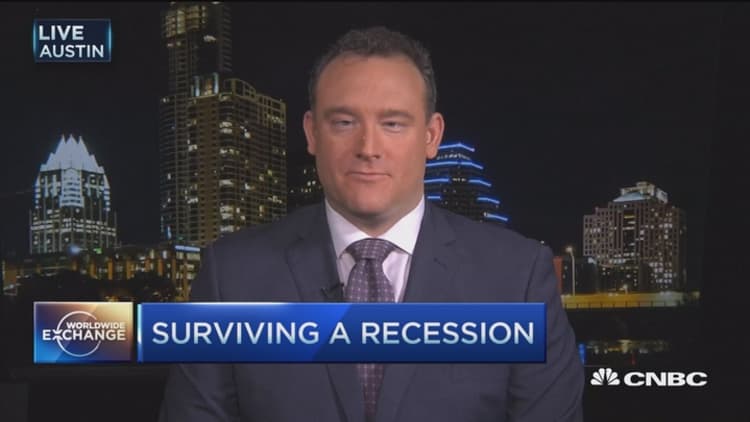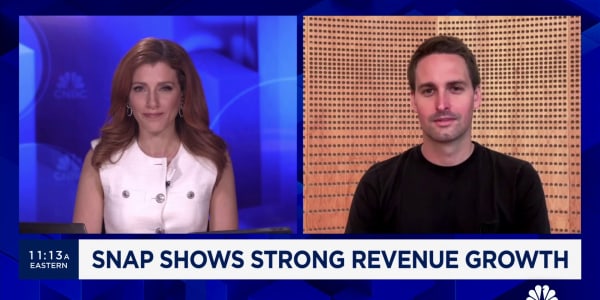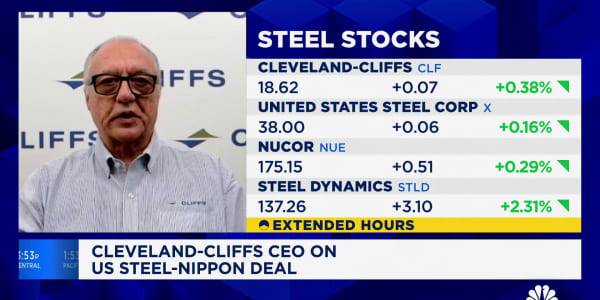
Stocks have gotten a lift lately in part from hopes that fears over a recession are overdone. That optimism could be a little premature.
In addition to several other trouble spots, two key indicators are flashing warning signs: income tax withholdings and corporate profits.
The withholdings data show taxes taken out of worker paychecks and are considered by some economists to be a strong indicator of overall economic growth. Released daily by the Treasury Department, the count is a simple nonadjusted measure of how much wages are growing.
Read More 'Bad Goldilocks' could be the market's worst enemy
The latest numbers showed a 0.2 percent annualized decline over the past four weeks, compared to growth rates of 2 percent in December and 3 percent in January, according to market research firm TrimTabs.
The data show "the U.S. economy is already stalling out," TrimTabs CEO David Santschi said. He pointed out that the slowdown in withholdings comes as "credit markets are flashing clear warning signs about future growth, growth in building permits and housing starts has pulled back, and manufacturing activity continues to contract."
A continuation in the trend would be a recession flag, Trim Tabs pointed out in a release, though Santschi noted that the month-to-month numbers are volatile.
On top of the other economic problems, corporate profits continue to wane, providing a headwind both for the economy and stock market. Estimates through the year show that the earnings recession is far from over and could last at least two more quarters.
Read More Challenges loom for producers to stabilize the oil market
With 87 percent of the reporting, total blended fourth-quarter earnings have shown a decline of 3.6 percent, according to FactSet. Assuming the trend holds up, it will mark the first time profits have fallen for three straight quarters since 2009.
But the road ahead doesn't get any easier.
FactSet is now projecting that earnings will decline 6.9 percent in the first quarter, a stunning move lower over time considering that in September the expectation was for 4.8 percent growth. S&P Capital IQ had been estimating the quarter to post a 15.1 percent gain in initial projections made in April 2015.
FactSet is not expecting profits to turn positive until at least the third quarter.
There are two primary culprits for the earnings weakness: Energy, which fell 74 percent in the fourth quarter and is expected to slide 93 percent in the first quarter, and the strong U.S. dollar. Companies with more than 50 percent of sales outside the U.S. fell 11.2 percent in the fourth quarter, while those with a majority of sales at the domestic level actually grew 2.7 percent.
Read More Slow progress bridging America's economic divide
In the most recent rally, which has brought the S&P 500 back to even for February, investors are hanging their hopes on a rebound in energy prices that will raise economic hopes and lift the market.
However, more sobering economic news could be only a few days away.
On Friday, the government will release the first revision to the fourth quarter's gross domestic product growth. Joe LaVorgna, Deutsche Bank's chief U.S. economist and a Wall Streeter who has been warning of recession risk, said the new number is likely to show the economy grew just 0.1 percent in the quarter, down from the original 0.7 percent and perilously close to contraction.
To be sure, a recession is not the consensus call on Wall Street, with projections in recent days showing increased optimism. Bob Doll, chief equity strategist at Nuveen Asset Management, said financial markets are pricing in a 50 percent chance of recession, while he sees a likelihood that GDP will rise 2.5 percent in 2016, though not without stumbles.
"Fears over the prospects of a recession are rising. We do not believe a recession is likely, but we acknowledge that it will take time for financial markets to stabilize and better data to emerge," Doll said in a recent commentary. "Unfortunately, this means confusion and turmoil could be the order of the day for several more weeks or even months."






